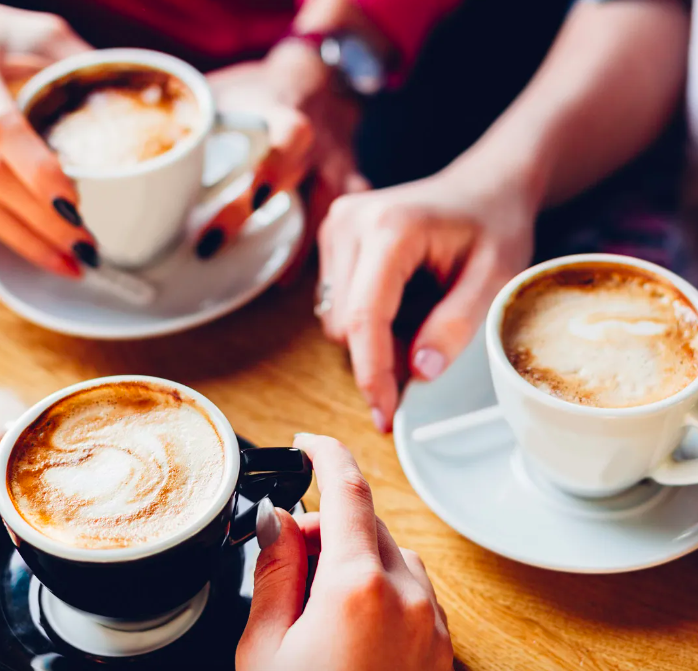
We live in a world of coffee fixes. There is There’s a reason the dark, opaque color of a rich coffee brew has us appreciating that it’s stronger than its translucent counterpart, tea. Not only does coffee have more caffeine per cup, but the way that caffeine affects us is different as well. This is partially because essential compounds, and also because the way we brew.
For a quick rundown, a single cup of coffee can vary anywhere from 95mg of caffeine to 200mg, on the stronger side. Obviously, we may opt to brew it a little less strong, and we can count on at least 30-175mg. It’s highly variable; however, the typical 8-ounce cup at home or a coffee shop is likely to be closer to 175mg.
Matcha, however, with a full teaspoon-sized serving, is around 80mg of caffeine. Black tea is only around 65mg of caffeine, while oolong, green and white tea are all under 50mg per serving.
This may be shocking, but matcha, oolong, black, green, and white tea all derive from the same tea leaves. The difference with matcha is that it uses the whole leaf, while the other kinds of tea are strained and steeped. Their difference in flavor and strength is thanks to the fermentation process. Black teas are fermented the longest, followed by oolong, then green. White tea leaves are typically not fermented at all, or only for a very limited amount of time. The fermentation process adds to the robustness in flavor, as well as bringing out bioavailable caffeine in the leaves.
The numbers don’t mean everything, though. The caffeine from coffee will make us feel very different from the caffeine in tea. We can thank L-theanine. This is a compound found in tea leaves, and it affects the way we absorb and feel caffeine. It actually helps the absorption of caffeine slow in the bloodstream, making us feel cool, calm and collected.
On the other hand, caffeine from coffee hits the bloodstream fast, and the result is often jitters and anxiety. While some people prefer the buzz from coffee because they can perceive the effects of caffeine much more than from tea, it can become addictive. That’s why many coffee addicts have several cups a day, and literally can’t function without their first morning cup.
L-theanine doesn’t just moderate our caffeine hits – it has some other major benefits. Animal neurochemistry studies show us that L-theanine increases serotonin, dopamine, and GABA levels, which has the power to not only calm us, but boost our mood in a significant, long-term way with regular consumption.
It’s long-term because lowered stress and a better mood have an effect on our energy levels, performance, sleep habits, and more. Basically, the caffeine from tea, particularly that in matcha, makes us feel more chill, alert, and focused, rather than jittery. The antioxidants and flavonoids also have neuroprotective capabilities, which are great for preventing cognitive decline.
While coffee also has antioxidants, it does not have as much as matcha, and it does not contain catechins, a special antioxidant that can help prevent and even treat cancer.
beauty beauty trends celebrities celebrity news christmas christmas movies coffee dating fall fashion fashion fashion designers fashion trends fashion week fitness hailey bieber hair trends halloween harry potter health Instagram Justin Bieber kate middleton King Charles meghan markle mental health milan fashion week movies music netflix new york city paris paris fashion week pregnancy prince harry princess diana prince william relationships royal family royals skincare street style television travel valentine's day wellness